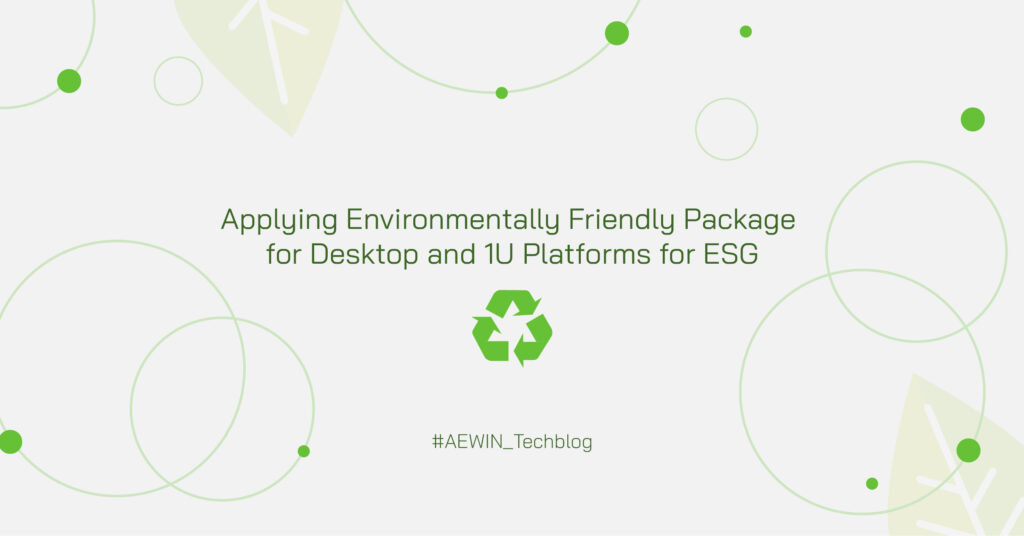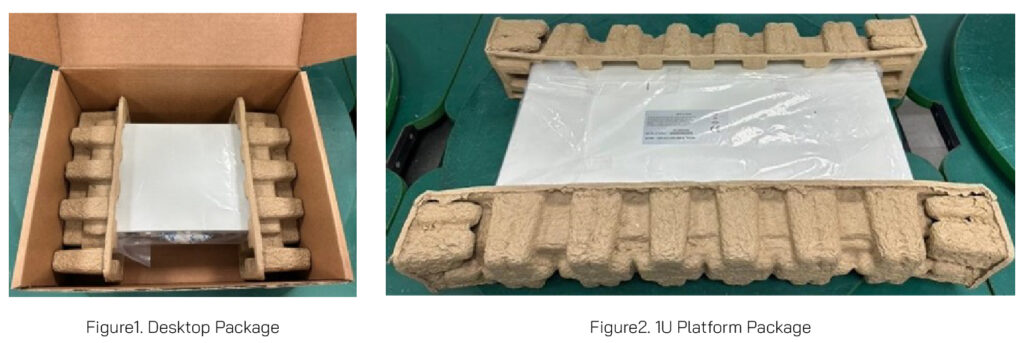
Introduction
As the global increasingly prioritize environmental, social, and governance (ESG) criteria, the focus on sustainability has expanded to include all aspects of production including packaging. The implementation of environmentally friendly packaging not only greatly lower the carbon footprint but also aligns with the growing consumer demand for sustainable practices. In this blog, we will explore the environmentally friendly materials that AEWIN applies in the packages of all series of desktops and 1U platforms.
Sustainable Packaging
Packaging is a significant contributor to waste and environmental degradation. Traditional packaging materials, such as plastic, have long been criticized for their negative environmental impact, including high carbon footprints and non-biodegradability. Transitioning to sustainable packaging solutions can significantly reduce these adverse effects and support the goal of ESG. AEWIN applies optimized package with the environmentally friendly packaging materials including Bio-plastic bag made from plant-based material and pulp molded paper to all series of desktop and 1U platforms.

Bioplastic Bags
The bio-plastic bags made from green material is an innovation solution. The material is derived from natural plant-based sources and has received certifications from the United States Department of Agriculture (USDA) and the Japan Organic Recycling Association (JORA). Its natural origins make it a sustainable alternative to conventional plastic.
-Key Benefits of Bio-based Material:
1.Reduced Carbon Emissions: Through ISO 14067 carbon footprint tracking, the plant-sourced material has -0.36 kg yearly carbon footprint. AEWIN applies the bioplastic bag with eco-friendly material to reduce around 10% of the carbon footprint compared to the traditional one.
2.Biodegradability: The plant-derived material performs impressive degradation performance in standard biodegradation test under controlled composting conditions (ASTM D5338) and marine environments (ASTM D6691). It shows that bioplastic bags can break down more easily and naturally, reducing long-term environmental impact.
Molded Paper Pulp: Eco-Friendly and Efficient
Another sustainable packaging material is molded paper pulp. This material is made from recycled paper pulp, making it a highly sustainable option. Molded paper pulp is particularly suitable for protective packaging due to its durability and shock-absorbing properties.
-Key Benefits of Pulp Molding Paper:
1.Recyclability: Molded paper pulp is entirely recyclable, contributing to a circular economy. Once the packaging has served its purpose, it can be easily recycled and reintroduced into the production cycle.
2.Biodegradability: Unlike traditional foam for shocking protection, molded paper pulp is biodegradable which can be naturally decomposed without harming the environment. This feature significantly reduces the waste that ends up in landfills.
3.Resource Efficiency: Utilizing recycled paper pulp conserves natural resources and reduces the need for virgin materials. This approach minimizes the environmental impact associated with raw material extraction and processing.
Conclusion
The shift toward environmentally friendly packaging is one of AEWIN’s approach to achieve ESG goals. AEWIN implements the optimized packaging solution with eco-friendly materials including bioplastic bags and molded paper pulp to reduce the overall carbon footprint and lower the environmental impact for sustainability.